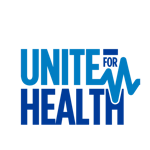Worldwide, people on the front lines have been working around the clock to contain the spread of COVID-19. With the United States experiencing the worst surge of the pandemic this holiday season, nurses, physicians, and other health professionals will have their hands full. This is their story.
Inequitable access to health care has long been a challenge in the United States. Even before the COVID-19 pandemic struck, the system was plagued by exorbitant prices, lack of insurance coverage, and significant health disparities based on race, income, and ZIP codes. Compared with other developed economies, the U.S. has the highest health care expenditures, yet that investment is not reflected in its outcomes. It has a lower life expectancy than the average of the OECD (the group of the world’s richest economies), as well as lower levels of health care coverage.
Now, the COVID-19 virus has cast into sharp relief the extent of the weaknesses of the health care system in the U.S. and how social determinants of health can affect outcomes in entire communities. COVID-19, which has claimed the lives of more than a quarter-million Americans and counting, has been the test of a lifetime for the American health care system.
To truly put this into perspective, the United Nations Foundation spoke to front-line workers around the country who are carrying out their jobs amid waves of COVID-19. From a firefighter/EMT simultaneously responding to fires — a byproduct of another deep-rooted challenge, the global fight against climate change — and fielding medical calls, to a nurse practitioner providing guidance on health services to the most vulnerable segments of her community, we will be featuring Americans whose experiences illustrate the urgency of equitable access to quality health care, and why we must #UniteforHealth now.
MEET ANGIE MILLER
Angie Miller is a family nurse practitioner at Heartland Health Services, a Federally Qualified Health Clinic (FQHC) in Peoria, Illinois, that provides access to high-quality, affordable health care to some of the area’s most vulnerable, including low-income families, homeless people, and other uninsured or underinsured populations.
Tell us about your day-to-day working during the COVID-19 pandemic
I’ve worked in the medical field for over 20 years, with experience in cardiology, infectious disease, internal medicine and pediatrics, and family medicine. Now, I find myself providing care to COVID-19 patients in an outpatient setting.
My role at Heartland is as the walk-in provider. I see everyone from newborns to the elderly for their immediate needs, and then I direct them to the appropriate place or person. For example, if they don’t have a primary care provider, I set them up with one, or if they need to go to a specialist, I refer them. I see patients for a variety of needs including school or work physicals, diabetes, hypertension, musculoskeletal injuries, headaches, anxiety, depression, STD testing, and suspected COVID-19 cases or COVID-19 follow-ups.
If someone comes in with COVID-like symptoms, I see them to rule out other causes for their symptoms, send them to our testing center, and have them quarantine until results are back.
If they mention that they have a family member at home with the virus, then I get them screened as well.
How do you feel being exposed to people who potentially have COVID-19?
In the beginning (February/March), I was very afraid because we did not know a lot about this virus. The information we received was changing almost daily, and we were seeing how badly New York was doing. It was also getting more difficult to get personal protective equipment (PPE).
I had an ill patient who came in, and I could see in her chart that her doctor’s office had not yet notified her of her positive COVID-19 result — that was very scary. I don’t enjoy being exposed, but I’ve gotten a little more used to it since I have seen COVID-positive patients. I just make sure I have my PPE on and continue to pray that God protects me.
I just make sure I have my PPE on and continue to pray that God protects me.
Angie Miller
Family Nurse Practitioner
How are people handling the virus in your area?
I think most people are taking this virus seriously, however there are still some who don’t — especially the younger people. Some are still having parties or are gathering, and not wearing masks or practicing social distancing. But the majority of people here are taking this virus seriously.
This pandemic has shined a light on the importance of equal access to health care. What does that mean for you?
This virus has been devastating for everyone, especially our vulnerable populations who have little to no access to health care. There are those who don’t qualify for government assistance or health insurance because they make too much money, but yet can’t afford their employer’s insurance. There are those who are homeless, others who are prisoners, and those who suffer from mental illness and those with comorbidities such as uncontrolled diabetes, obesity, or hypertension.
It makes me feel like our center is more important than ever now because we’re trying to help these people who have nowhere else to go.
This virus has been devastating for everyone, especially our vulnerable populations who have little to no access to health care
Angie Miller
Family Nurse Practitioner
What is a positive or hopeful moment that you’ve had working during the pandemic?
Positive moments for me are when I see a patient, friend, or loved one recover from this virus. The recovery rate is high, and this keeps me hopeful. I’m hoping and praying that 2021 will be a better year.
This holiday season, let us recognize the essential workers who are tirelessly working every day so we can be safe during this pandemic. They provide lifesaving care to those in need — often in precarious conditions. We are all safer and stronger when we #UniteforHealth.





